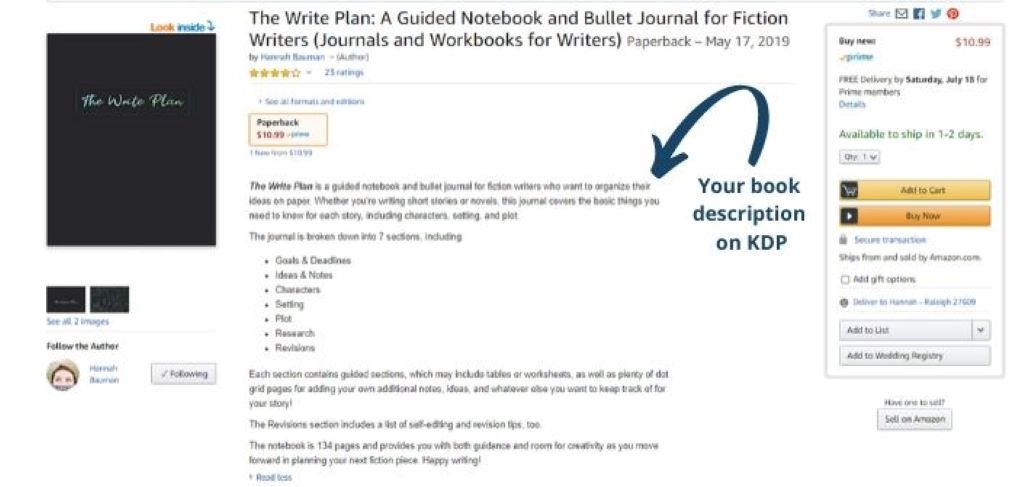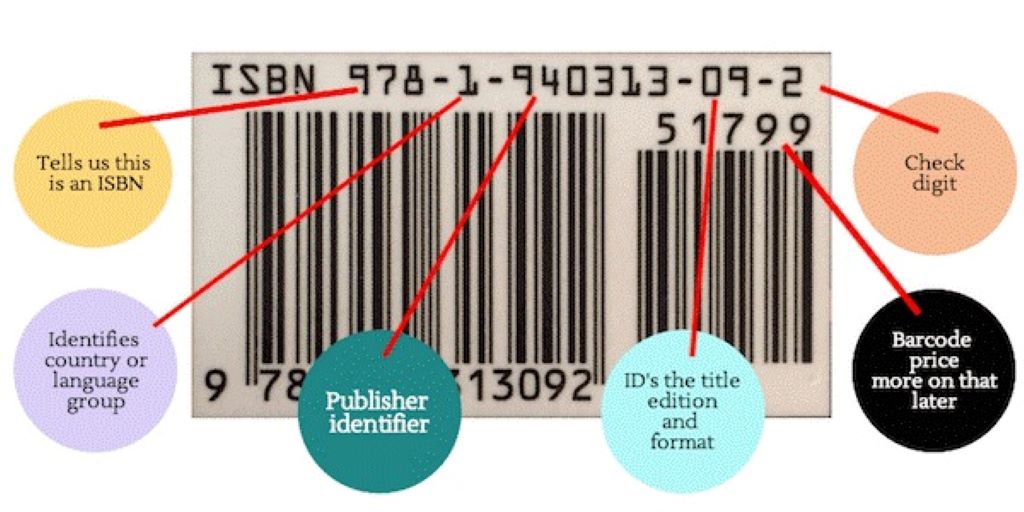Independent micro-presses face unique challenges when publishing books through Amazon’s Kindle Direct Publishing platform. Understanding ISBN strategies becomes crucial for long-term success and professional credibility. Businesses Automated research shows that proper ISBN management can significantly impact a publisher’s brand recognition and distribution opportunities.
Understanding ISBN Fundamentals
ISBN numbers serve as unique identifiers for published books worldwide. Each format requires its own ISBN, including paperback, hardcover, and ebook versions. Therefore, planning your ISBN strategy early prevents costly mistakes later.
When deciding whether to self-publish via amazon kdp or target a niche publisher, many authors choose the self-publishing route for greater control. However, this choice requires understanding ISBN implications for distribution and credibility.
Free Amazon ISBN vs. Purchased ISBN Options
Amazon offers free ISBN numbers through their KDP platform. These ISBNs list Amazon as the publisher of record. However, purchasing your own ISBNs provides several advantages for micro-presses building their brand.
Benefits of Free Amazon ISBNs
Free ISBNs work perfectly for individual authors testing the market. They require no upfront investment and allow immediate publication. Additionally, Amazon handles all ISBN registration details automatically.
Advantages of Purchased ISBNs
Owning your ISBNs establishes your micro-press as the official publisher. This ownership creates professional credibility with libraries, bookstores, and industry databases. Furthermore, purchased ISBNs enable broader distribution beyond Amazon’s platform.
Step-by-Step ISBN Acquisition Strategy
Successfully implementing an ISBN strategy requires careful planning and execution. Following these steps ensures your micro-press makes informed decisions about ISBN management.
Step One: Determine Publishing Goals
Define your micro-press’s long-term objectives before choosing ISBN options. Consider whether you plan to publish multiple titles, expand distribution channels, or build brand recognition. Additionally, evaluate your budget for ISBN purchases versus free alternatives.
Step Two: Research ISBN Agencies
In the United States, Bowker serves as the official ISBN agency. Other countries have different agencies that manage ISBN allocation. Therefore, identify the correct agency for your location before beginning the application process.
Step Three: Choose Your ISBN Package
Bowker offers various ISBN packages ranging from single numbers to bulk purchases. Micro-presses typically benefit from purchasing 10 or 100 ISBNs at discounted rates. However, single ISBNs work for publishers testing the market with limited titles.
Step Four: Complete Registration Process
The ISBN registration process requires specific publisher information and contact details. Provide accurate information since changes become difficult after registration. Additionally, ensure your micro-press name appears exactly as desired in industry databases.
Step Five: Implement Title Management
Organize your ISBN assignments using spreadsheets or database software. Track which numbers belong to which titles and formats. Furthermore, maintain backup records of all ISBN assignments for future reference.
Strategic Considerations for Micro-Presses
Micro-presses operate differently from large publishing houses, requiring tailored ISBN strategies. Understanding these unique needs helps optimize your approach to ISBN management.
Brand Building Through ISBNs
Consistent publisher information across all ISBNs strengthens brand recognition. Libraries and bookstores recognize established micro-press names more readily than individual authors. Therefore, maintaining consistent branding becomes essential for long-term success.
Distribution Channel Requirements
Different distribution channels have varying ISBN requirements. While Amazon accepts free ISBNs, other platforms may require purchased numbers. According to Publishers Weekly, many independent bookstores prefer working with publishers who own their ISBNs rather than those using platform-assigned numbers.

Cost-Benefit Analysis for ISBN Investment
Understanding the financial implications helps micro-presses make informed decisions about ISBN purchases. Comparing costs against potential benefits reveals the true value of ISBN ownership.
Initial Investment Costs
Single ISBNs cost significantly more per unit than bulk purchases. Ten ISBNs typically cost about the same as three individual numbers. However, unused ISBNs represent sunk costs if publishing plans change.
Long-Term Revenue Impact
Owned ISBNs enable broader distribution opportunities that can increase revenue streams. Libraries often prefer purchasing from established publishers rather than platform-specific sources. Additionally, professional credibility can lead to speaking engagements and consulting opportunities.
Common ISBN Strategy Mistakes
Avoiding typical pitfalls saves time and money while building your micro-press effectively. Learning from others’ mistakes prevents costly errors in your ISBN implementation.
Inconsistent Publisher Information
Using different publisher names across various ISBNs confuses databases and customers. Maintain identical spelling and formatting for all publisher information. Furthermore, avoid abbreviations that might create inconsistencies in different systems.
Premature ISBN Assignment
Assigning ISBNs before finalizing book details wastes valuable numbers. Wait until titles, formats, and publication details are confirmed. Additionally, assigned ISBNs cannot be transferred between projects or publishers.
Neglecting Format Requirements
Each book format requires its own ISBN, including different trim sizes of the same content. Plan for all intended formats during initial ISBN acquisition. However, avoid purchasing unnecessary ISBNs for formats you may never use.
Distribution Strategy Integration
ISBN choices directly impact distribution possibilities and revenue potential. Aligning your ISBN strategy with distribution goals maximizes publishing success.
Library Market Access
Libraries typically prefer purchasing from established publishers with owned ISBNs. This preference stems from cataloging systems that organize materials by publisher. Therefore, owned ISBNs improve library sales opportunities significantly.
Bookstore Relationships
Independent bookstores often resist stocking books with platform-assigned ISBNs. They prefer working with publishers who demonstrate long-term commitment through ISBN ownership. Additionally, owned ISBNs facilitate return policies and special ordering systems.
Technology Tools for ISBN Management
Modern software solutions simplify ISBN tracking and management for busy micro-presses. Implementing these tools early prevents organizational problems as your catalog grows.
Database Management Systems
Simple spreadsheet programs work adequately for small catalogs. However, dedicated publishing software offers advanced features like automatic metadata generation. Furthermore, cloud-based systems provide backup protection and remote access capabilities.
Integration with Publishing Platforms
Many publishing platforms accept ISBN imports from external databases. This integration streamlines the publishing process across multiple channels. Additionally, consistent metadata reduces errors and improves discoverability.
Future-Proofing Your ISBN Strategy
Planning ahead ensures your ISBN strategy remains effective as your micro-press grows. Anticipating future needs prevents costly strategy changes later.
Scalability Considerations
Purchase sufficient ISBNs to accommodate growth without frequent reordering. Bulk discounts make larger purchases more economical over time. However, balance cost savings against potential changes in publishing plans.
Industry Evolution Preparation
Digital publishing continues evolving, potentially affecting ISBN requirements. Stay informed about industry changes that might impact your strategy. Additionally, maintain flexibility to adapt your approach as needed.
Conclusion
Implementing a strategic approach to ISBN management gives indie micro-presses significant advantages in the competitive publishing landscape. Understanding the differences between free and purchased ISBNs enables informed decision-making. Additionally, proper planning prevents costly mistakes while building professional credibility. Whether choosing Amazon’s free options or investing in purchased ISBNs, consistency and organization remain crucial. Furthermore, aligning ISBN strategy with distribution goals maximizes revenue potential and market reach. Successful micro-presses view ISBN investment as essential infrastructure rather than optional expense.
Frequently Asked Questions
Q: Should micro-presses always purchase their own ISBNs instead of using Amazon’s free options? A: It depends on your goals. If you plan to publish multiple titles and want broader distribution, purchased ISBNs provide better long-term value. However, free Amazon ISBNs work well for testing the market with limited titles.
Q: How many ISBNs should a new micro-press purchase initially? A: Most micro-presses benefit from purchasing 10 ISBNs initially. This quantity provides bulk pricing advantages while offering sufficient numbers for multiple titles and formats without excessive upfront investment.
Q: Can ISBNs be transferred between different publishers or authors? A: No, ISBNs cannot be transferred once assigned to a specific publisher. Each ISBN permanently belongs to the publisher listed in the registration database, making initial decisions crucial.
Q: Do ebooks require different ISBNs than print versions of the same book? A: Yes, each format requires its own ISBN. A paperback, hardcover, and ebook version of the same title need separate ISBNs, even though the content remains identical.
Q: What happens if a micro-press publishes without an ISBN? A: Books without ISBNs cannot be sold through most retail channels or cataloged by libraries. While some online platforms accept books without ISBNs, distribution opportunities become severely limited.
Read More:
A Guide to Setting Up Your Own DJ Business

